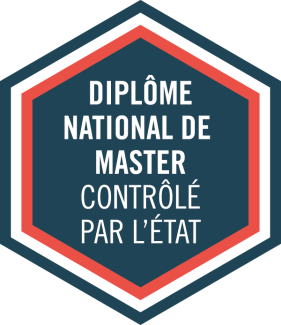
Teaching method: Initial training, Continuing training or sandwich course
Location : Marseille
Type of diploma: Master's
Length of studies: 2 years
Exit level: Bac+5
Language(s) : French
Department : Logistics, Organization and International Trade

-
Objectives
The objectives of the "Energy and Natural Resource Economics" (EERN) stream of the Master's degree in Business and Market Economics are to provide students with a basic understanding of the models and methods used in energy and environmental economics, so that they have a coherent frame of reference when managing projects, and analyzing markets or specific resources. This conceptual framework and these operational tools are necessary to integrate into private or collective action the search for greater efficiency and the consideration of broader socio-economic objectives.
The EERN pathway trains future decision-makers in the application of economic and management methods to analyze, evaluate and implement strategies and projects (private and public) in the energy and natural resources sector, and more broadly in the perspective of sustainable development and energy transition.
On completion of this program, graduates will be able to:
- Support companies and public bodies in their strategies for developing and expanding energy production and distribution (fossil or renewable), energy efficiency, greenhouse gas reduction and rationalization of natural resource use.
- Carry out sector studies in the field of energy or natural resources to assess opportunities for the development of innovative products and services.
- Design and implement different business models or partnerships that meet the requirements of the energy transition and sustainable development.
- Evaluate the socio-economic impact of projects or resources using proven international methodologies.
- Formalize and support voluntary standardization initiatives in the fields of recycling, environmental or energy management, or the development and updating of a climate, air and energy plan.
- Communicate with stakeholders in French and English, using appropriate media and methods.
-
Teaching
Master 2 EEM Energy and Natural Resources Economics (EERN) (60 credits)
- Semester 3 M2 EEM Energy and Natural Resources Economics (EERN) (30 credits)
- Socio-economic assessment (6 credits)
- Cost benefits analysis
- Environmental balance and energy scenarios
- Territorial projects and sustainable development (6 credits)
- Geographic information systems (GIS)
- Territorial projects and sustainable development
- Empirical methods (6 credits)
- Behavioral analysis and experience
- Surveys and market research
- Energy and natural resources economics (3 credits)
- Energy production, distribution and storage (3 credits)
- Energy systems and transition (3 credits)
- Environmental management (3 credits)
- Semester 4 M2 EEM Energy and Natural Resources Economics (EERN) (30 credits)
- Innovation marketing and sustainable development (3 credits)
- English (3 credits)
- Option: UE for alternating students / UE for non-alternating students (24 credits)
- Option for non-alternatives (24 credits)
- Internship and professional thesis (18 credits)
- Application workshop (6 credits)
- Project
- Project management and financing
- Option for work-study students (24 credits)
- Work-study assignment and professional thesis (24 credits)
-
Admission - Second year
Who can apply?
Any student who has completed one year of a Master's degree (60ects). Candidates must present a study and professional project in the field of training. Students from scientific and technical backgrounds may also apply. They will need to pass a refresher course in economics and management.
A solid background in economics and management and initial experience of project management are recommended.
How do I apply?
Apply at the time of admissions on the dedicated platform.
-
Practical information
Internships and projects are an important part of the curriculum. A long internship of 4 to 6 months is compulsory in semester 4, and leads to the writing of a professional thesis. A project organized throughout the year puts students in the position of having to respond to a request from a professional partner. Some projects are carried out in collaboration with local engineering schools.
The Master's program takes a skills-based approach, emphasizing innovative teaching methods, a variety of situational situations drawing on tried-and-tested methods, team dynamics and the mobilization of individual knowledge and know-how.
This course is available in :
- Initial training
- Continuing education
- Work-study training
- Professional training contract
-
What next?
Career opportunities
Graduates will be able to apply for jobs in :
- Companies in the energy sector (fossil, renewable, biomass, etc.), such as : market researchers, environmental and CSR researchers; water and electricity network managers; business and economic engineers; local authority relations managers; recycling and waste project managers; certification managers; environmental, energy and CSR management managers; consultants.
- Professional associations and NGOs in the energy and environment sector, such as: Market Research and Project Managers.
- Local authorities, such as: Energy and environment project managers; Eco-neighborhood and circular economy project managers; Climate Air Energy Plan managers.
The course provides students with recognized methods and operational skills, enabling them to tackle a wide range of professional situations in the field of business creation.
The professional orientation of the program does not exclude the possibility of continuing studies in specialized masters or doctoral programs, notably through CIFRE or regional grants.
